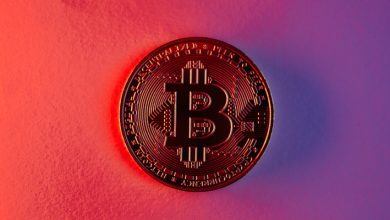Understanding Crypto Exchanges: Centralized vs Decentralized Platforms

- Centralized Crypto Exchanges: Pros and Cons
- Decentralized Platforms: How Do They Work?
- Security Measures in Centralized Exchanges
- The Role of Smart Contracts in Decentralized Exchanges
- Regulation and Compliance: Centralized vs Decentralized
- User Experience Comparison: Centralized vs Decentralized Platforms
Centralized Crypto Exchanges: Pros and Cons
Centralized crypto exchanges have their own set of advantages and disadvantages. Let’s take a look at some of the pros and cons of using centralized exchanges to trade cryptocurrencies.
- Pros:
- 1. High Liquidity: Centralized exchanges typically have higher trading volumes, which means you can buy and sell cryptocurrencies quickly without affecting the market price.
- 2. Easy to Use: These platforms are user-friendly and suitable for beginners who are new to crypto trading.
- 3. Security Measures: Centralized exchanges often have robust security protocols in place to protect your funds from hackers.
- 4. Customer Support: You can usually get help quickly from customer support teams if you encounter any issues while trading.
- Cons:
- 1. Centralized Control: These exchanges are controlled by a single entity, which goes against the decentralized ethos of cryptocurrencies.
- 2. Security Risks: Despite security measures, centralized exchanges are still vulnerable to hacks and theft.
- 3. Regulatory Scrutiny: Governments can impose regulations on centralized exchanges, affecting how you can trade cryptocurrencies.
- 4. Privacy Concerns: Your personal information may be required to comply with KYC/AML regulations, compromising your privacy.
It is essential to weigh the pros and cons of centralized crypto exchanges before deciding to use them for trading. Consider your priorities, such as liquidity, ease of use, security, and privacy, to make an informed decision that aligns with your trading goals and values.
Decentralized Platforms: How Do They Work?
Decentralized platforms work by cutting out the middleman and allowing users to trade directly with one another. These platforms use blockchain technology to facilitate peer-to-peer transactions, eliminating the need for a central authority to oversee trades. This means that users have more control over their funds and can trade with greater privacy and security.
One of the key features of decentralized platforms is their use of smart contracts, which are self-executing contracts with the terms of the agreement directly written into code. This eliminates the need for a third party to enforce the terms of the contract, as the code itself ensures that all parties meet their obligations.
Decentralized platforms also offer greater transparency, as all transactions are recorded on a public ledger that is viewable by anyone. This helps to prevent fraud and manipulation, as users can verify the integrity of the platform at any time. Additionally, decentralized platforms are often more resistant to censorship and government interference, as they are not controlled by any single entity.
Security Measures in Centralized Exchanges
Security measures in centralized exchanges play a crucial role in safeguarding users’ assets and data. These platforms implement various protocols and technologies to protect against cyber threats and unauthorized access.
One common security measure is the implementation of two-factor authentication (2FA) for user accounts. This adds an extra layer of protection by requiring users to verify their identity using a second method, such as a mobile app or SMS code, in addition to their password.
Centralized exchanges also employ encryption techniques to secure sensitive data, such as personal information and transaction details. This helps prevent hackers from intercepting and exploiting this data for malicious purposes.
Regular security audits and penetration testing are conducted to identify and address vulnerabilities in the exchange’s systems and infrastructure. This proactive approach helps mitigate risks and ensure that security measures are up to date.
Furthermore, many centralized exchanges store the majority of user funds in cold wallets, which are offline storage devices not connected to the internet. This reduces the risk of funds being stolen in the event of a security breach.
The Role of Smart Contracts in Decentralized Exchanges
Smart contracts play a crucial role in decentralized exchanges (DEX). These contracts are self-executing agreements with the terms of the contract directly written into code. When a trade is initiated on a DEX, the smart contract automatically facilitates the transfer of assets between parties once certain conditions are met. This eliminates the need for a central authority to oversee the transaction, making the process more efficient and secure.
One of the key advantages of using smart contracts in DEX is that they reduce the risk of fraud and manipulation. Since the terms of the trade are predefined and immutable, there is no room for malicious actors to interfere with the transaction. Additionally, smart contracts enable a higher level of transparency, as all transactions are recorded on the blockchain for anyone to verify.
Another benefit of smart contracts in DEX is the ability to trade directly from a personal wallet, without the need to deposit funds onto an exchange. This not only gives users more control over their assets but also reduces the risk of hacks or theft from centralized exchanges. With smart contracts, users can trade peer-to-peer in a trustless manner, without having to rely on intermediaries.
Overall, smart contracts are a key component of decentralized exchanges, enabling secure, transparent, and efficient trading without the need for a central authority. By leveraging the power of blockchain technology, DEX can provide users with a more decentralized and democratic trading experience.
Regulation and Compliance: Centralized vs Decentralized
When it comes to regulation and compliance, centralized and decentralized crypto exchanges operate under different frameworks. Centralized exchanges are typically subject to more stringent regulatory oversight due to their centralized nature. This means that they must adhere to laws and regulations set forth by governmental authorities in order to operate legally. On the other hand, decentralized exchanges operate on a peer-to-peer basis without a central authority, making it more challenging for regulators to enforce compliance.
Centralized exchanges are often required to implement Know Your Customer (KYC) and Anti-Money Laundering (AML) procedures to verify the identities of their users and prevent illicit activities. These exchanges also have to comply with financial regulations such as the Bank Secrecy Act (BSA) and the Financial Action Task Force (FATF) guidelines. This level of regulation helps to ensure the safety and security of users’ funds and protects against fraud and money laundering.
Decentralized exchanges, on the other hand, do not have a central authority overseeing their operations, making it harder for regulators to enforce compliance. While this may offer more privacy and anonymity to users, it also poses risks in terms of security and regulatory compliance. Without proper oversight, decentralized exchanges may become breeding grounds for illegal activities such as money laundering and terrorist financing.
In conclusion, the centralized vs decentralized debate in the context of regulation and compliance ultimately comes down to a trade-off between security and privacy. Centralized exchanges offer more security and regulatory oversight, while decentralized exchanges provide greater privacy and autonomy. It is important for users to weigh these factors carefully when choosing a crypto exchange that aligns with their needs and risk tolerance.
User Experience Comparison: Centralized vs Decentralized Platforms
When comparing the user experience of centralized and decentralized platforms in the realm of crypto exchanges, there are several key factors to consider.
Centralized platforms often offer a more familiar and user-friendly interface for those who are new to the world of cryptocurrency trading. These platforms are typically easier to navigate, with intuitive design elements that guide users through the process of buying, selling, and trading digital assets. Additionally, centralized platforms often provide customer support services to assist users with any issues they may encounter.
On the other hand, decentralized platforms offer a different user experience that appeals to those who value privacy and security. These platforms operate on blockchain technology, which means that users have more control over their funds and transactions. While decentralized platforms may have a steeper learning curve for beginners, they offer a greater degree of autonomy and security for experienced traders.
In terms of speed and efficiency, centralized platforms tend to have an edge over decentralized platforms. Centralized exchanges can process a higher volume of transactions at a faster rate, making them ideal for traders who require quick order execution. However, this speed often comes at the cost of transparency and security.
Decentralized platforms, on the other hand, prioritize security and transparency over speed. Transactions on decentralized exchanges are executed directly between users, without the need for a central authority to facilitate the trade. While this may result in slightly slower transaction times, it also reduces the risk of hacking and fraud.
Ultimately, the choice between centralized and decentralized platforms comes down to personal preference and trading style. Centralized exchanges offer a more user-friendly experience with faster transaction speeds, while decentralized exchanges prioritize security and transparency. By weighing the pros and cons of each type of platform, users can determine which option best aligns with their individual needs and preferences in the crypto trading space.



